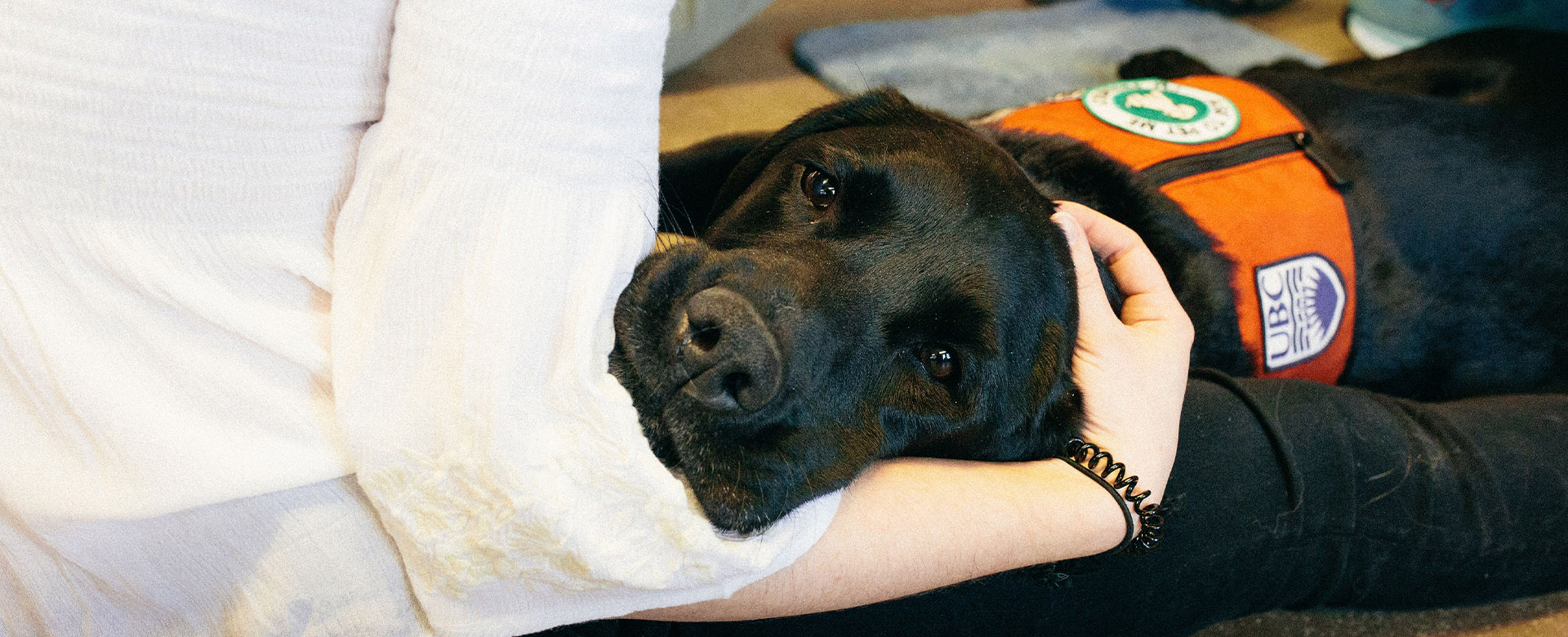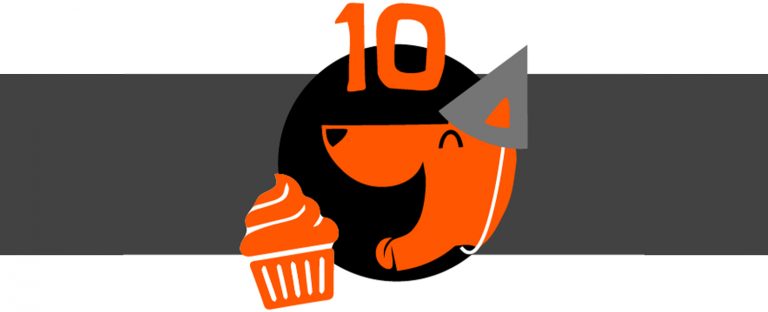About

UBC Okanagan’s popular canine therapy program explores how therapy dogs reduce stress and increase well-being in a variety of populations — from elementary and university students to law enforcement personnel.
Standing for “Building Academic Retention Through K9s”, B.A.R.K. is a canine-assisted intervention run under the direction of Dr. John Tyler Binfet at the University of British Columbia, Okanagan Campus. B.A.R.K. brings together university students and trained therapy dogs and handlers in an effort to reduce stress, combat homesickness, foster interpersonal connections, and promote the overall social-emotional well-being of students.
Dr. Binfet runs intervention research studies (comprised of first-year students in either a treatment group or a wait-list control group) and drop-in sessions where students, faculty, and staff from the larger university community can spend time with therapy dogs.
B.A.R.K. is supported by the AVP, Students’ Office, Okanagan School of Education, and VEDA Exclusive Student Living. These sponsors help make B.A.R.K. programming and research possible.
B.A.R.K. Core Beliefs and Values
- Community members play a key role in enhancing research initiatives on campus. B.A.R.K. volunteer dog handlers contribute enormously to both research protocols and to enriching students’ experiences on campus.
- B.A.R.K. research and Drop-in programmes provide a framework for mentoring student scholars and volunteers.
- B.A.R.K. is committed to supporting diversity and strives to create working climates where everyone is welcome, recognized, and invited to contribute.
- B.A.R.K. is committed to community partnerships and to this end supports the efforts of local animal-welfare groups (e.g., Paws it Forward, Kelowna SPCA).
- B.A.R.K. is committed to upholding the highest standards of research. This includes adhering to both Human Behavioural Research Ethics Standards and to Animal Welfare Ethics Standards, using experimental designs that includes the randomization of participants into treatment and control conditions, and including follow-up assessments of treatment effects as part of methodological designs.
- B.A.R.K. is committed to giving back to the university community and pledges to have an active presence in student and university initiatives (e.g., CREATE, THRIVE).
Celebrating 10 years of B.A.R.K.
Throughout September 2022, B.A.R.K. recognized this milestone achievement with a variety of events and activities, including Meet & Greet with UBCO Heat, yoga session and wrap-up celebration.
Thank you to all those who have made this program possible, from our student visitors and volunteers to our handlers – and especially our dogs!
Frequently Asked Questions
The goal of B.A.R.K. Is to support the social and emotional well-being of university students, with a focus on first year students who are heightened risk of facing challenges around homesickness and social integration. B.A.R.K. stands for “Building Academic Retention through K9s”.
Often confused with canine therapy, an approach that sees a certified mental health professional incorporate a trained therapy dog into the support and services provided to clients, canine-assisted visitation can be an intervention or program offered to support individuals seeking to reduce their stress, to feel less homesick, to get connected to others in their community, or for individuals seeking to simply feel better. At the heart of canine-assisted visitation are certified dog-handler teams who work under the direction of a canine therapy agency to provide support to visitors through interactions with individual dog-handler teams. Both the contexts within which canine-assisted visitation programs might operate and the client or visitor supported by canine-assisted visitation can vary and as a field, we’re seeing this form of providing access to therapy dogs burgeoning. Programs are now routinely found on college campuses, in residential care facilities for the elderly, in airports to reduce stress in travelers, in funeral homes to support mourners, and even in the dentist’s office to support anxious patients.
B.A.R.K. is a programme run under the direction of Dr. Binfet in the Faculty of Education along with both community volunteers and student volunteers. Freya Green is the B.A.R.K. Program Coordinator and can be reached via email at: bark.dogtherapy@ubc.ca.
Dr. Binfet organizes two types of programming:
- Intervention studies in which students are paired with therapy dogs and pre-, post-, and follow-up assessments are collected to determine the effects of animal-assisted therapy on students’ well-being; and
- Drop-In Sessions in which dogs are brought to campus to reduce stress for members of the university community.
B.A.R.K. receives funding from the Academic Vice President, Students’ Office. This funding supports B.A.R.K. Initiatives – from identifying B.A.R.K. dogs with red therapy vests, supporting the parking expenses of community volunteers, and helping with research-related expenses arising from the various studies done in B.A.R.K.
In addition, B.A.R.K. receives donations from the community. Donations big and small help keep our programs and research initiatives going.
B.A.R.K. Annual Reports
- B.A.R.K. 2022-2023 Year 11 Annual Report
- B.A.R.K. 2021-2022 Year 10 Annual Report
- B.A.R.K. 2020-2021 Year 9 Annual Report
- B.A.R.K. 2019-2020 Year 8 Annual Report
- B.A.R.K. 2018-2019 Year 7 Annual Report
- B.A.R.K. 2017-2018 Year 6 Annual Report
- B.A.R.K. 2016-2017 Year 5 Annual Report
- B.A.R.K. 2014-2015 Year 3 Annual Report
- B.A.R.K. 2013-2014 Year 2 Annual Report
